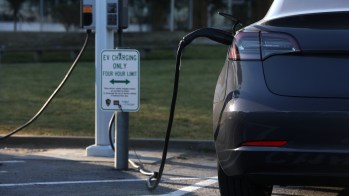Who’s responsible for conflict minerals?
TEXT OF STORY
Kai Ryssdal: Even though it ran 2,000-something pages, a lot of the new rules that the financial reform law established have yet to be written. One, in particular, is vexing some big retailers. The Securities and Exchange Commission is drafting new rules aimed at conflict minerals from Africa, sold by warlords and militias to raise money and buy weapons. Companies will have to certify that their products are free of any of those minerals.
As Sarah Gardner reports from the Marketplace Sustainability Desk, that turns it into a supply chain story.
Sarah Gardner: The four “conflict” minerals are tin, tungsten, gold and a rare metal called tantalum. Lots of electronic goods from DVDs to laptops wouldn’t function without them. So hundreds of American manufacturers will have to comply with this new law.
But it’s not clear yet whether the SEC will make big retailers, like Wal-Mart and Best Buy, do the same. In October, a major retail trade group wrote the SEC arguing they should be exempt since they depend on other companies to make their private label brands.
Harvard Business School’s Rakesh Khurana says regardless of whether retailers should be held responsible.
Rakesh Khurana: I think responsible companies are recognizing that society and their constituents want to see them acting in ways that takes full responsibility for the types of activities that they generate.
But Mark Pastin at the Council of Ethical Organizations says this sort of “name and shame” law is a bad way to stop war in the Congo.
Mark Pastin: It’s kind of one of those things where, we, meaning the U.S. government, didn’t accomplish our policy goals, let’s push it back on U.S. corporations and the U.S. consumer.
Even companies like Hewlett Packard and Dell that supported the conflict minerals law say it’s difficult to trace the origins of these minerals in the Congo, especially whether rebel groups have benefitted from them. The Enough Project, a group that lobbied for the law, says rebel groups made almost $200 million in 2008 off conflict minerals.
I’m Sarah Gardner for Marketplace.
There’s a lot happening in the world. Through it all, Marketplace is here for you.
You rely on Marketplace to break down the world’s events and tell you how it affects you in a fact-based, approachable way. We rely on your financial support to keep making that possible.
Your donation today powers the independent journalism that you rely on. For just $5/month, you can help sustain Marketplace so we can keep reporting on the things that matter to you.


















